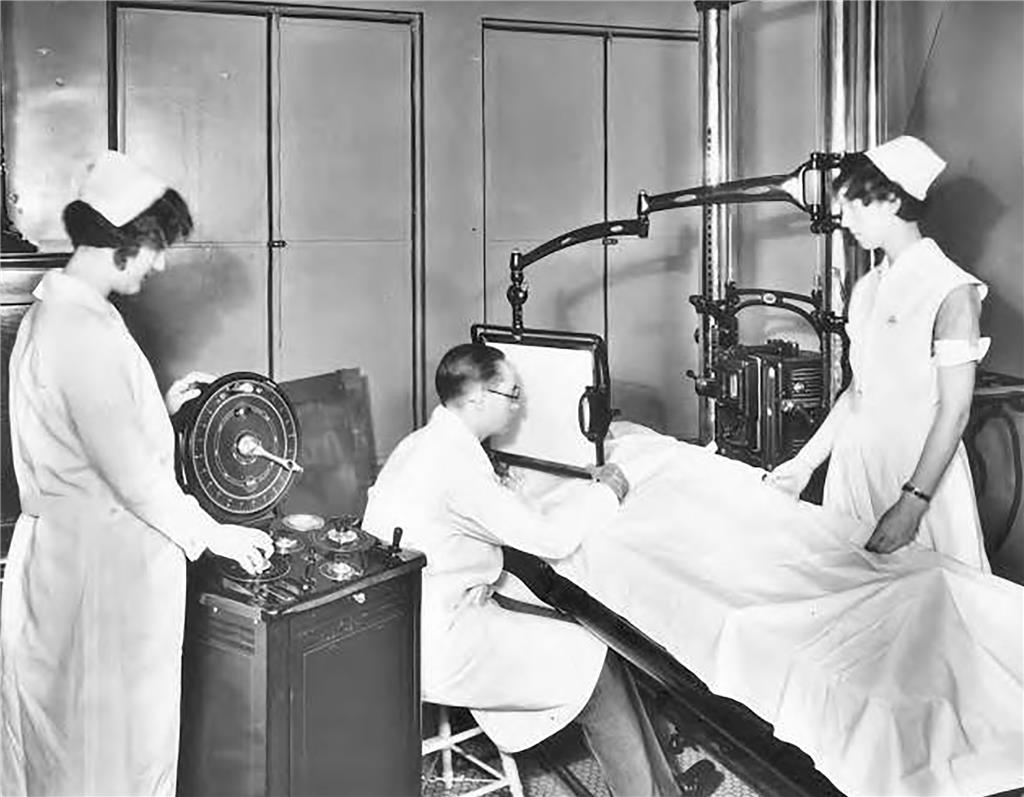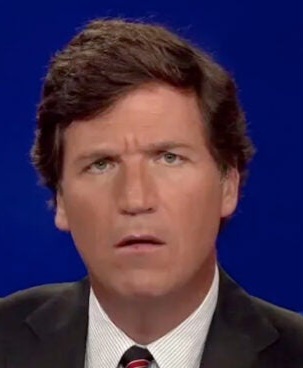"Each of us must take into account the raw material which heredity dealt us at birth and the opportunities we have had along the way, and then work out for ourselves a sensible evaluation of our personalities and accomplishments."
Alan L. Hart (1890 – 1962) was a US American 20th-century physician, radiologist, disease researcher, and novelist who pioneered the use of x-ray in detection for tuberculosis. He spent the latter part of his career in public health, undoubtedly saving many thousands of lives across the country expanding tb services and education throughout rural areas. In 1917 Hart was one of the first people to undergo a gender affirming hysterectomy in the United States, and is the first documented case of a female to male transition in medical literature in the English speaking world.
“I had to do it. For years I had been unhappy. With all the inclinations and desires of the boy I had to restrain myself to the more conventional ways of the other sex. I have been happier since I made this change than I ever have in my life, and I will continue this way as long as I live’
interview with Hart about his hysterectomy
Hart begin expressing himself as a boy starting at least age 4, and was largely accepted by his family as male, with his grandfathers obituary in 1921 listing Hart as his grandson. A family friend of his stated in a 1921 interview “Young Hart was different, even then. Boys' clothes just felt natural. Hart always regarded himself as a boy and begged his family to cut his hair and let him wear trousers. Hart disliked dolls but enjoyed playing doctor. He hated traditional girl tasks, preferring farm work with the menfolk instead. The self reliance that became a lifelong trait was evident early: once when he accidentally chopped off his fingertip with an axe, Hart dressed it himself, saying nothing about it to the family.” During childhood school, Hart wrote most of his assignments under his first chosen name of Robert Allen Bamford Jr.
Hart received a total of 4 degrees in his life. He received a pre med degree in 1912 from Portland, Oregon’s Lewis & Clark College, then known as Albany College, followed by a medicine degree doctorate from the University of Oregon Medical Department in Portland (now Oregon Health & Science University) in 1917. His doctorate was originally issued under "Hart, [deadname] aka Robert L., M.D.”. which prompted a legal name change in 1918. He took his first medical job at a Red Cross hospital at this point. In 1928, Hart received a master’s degree in radiology from the University of Pennsylvania and was named director of radiology at Tacoma General Hospital. After working for several years as a tuberculosis consultant in Washington and Idaho, Alan Hart moved with his wife to Hartford, Connecticut, where he received a master’s degree in public health from Yale University in 1948. Around this time, Hart began taking testosterone and is described as having a deeper voice and being able to grow facial hair as a result.
TUBERCULOSIS

Hart devoted much of his career to research and treatment of tuberculosis. By the dawn of the 19th century, tuberculosis—or consumption—had killed one in seven of all people that had ever lived. Throughout much of the 1800s, consumptive patients sought "the cure" in sanatoriums, where it was believed that rest and a healthful climate could change the course of the disease. In 1882, Robert Koch's discovery of the tubercule baccilum revealed that TB was not genetic, but rather highly contagious; it was also somewhat preventable through good hygiene. After some hesitation, the medical community embraced Koch's findings, and the U.S. launched massive public health campaigns to educate the public on tuberculosis prevention and treatment. TB usually attacked victims' lungs first; Hart was among the first physicians to document how it then spread, via the circulatory system, causing lesions on the kidneys, spine, and brain, eventually resulting in death. With no cure for the disease in its advanced stages the only hope for sufferers was early detection.
X-rays, or Roentgen rays as they were more commonly known until World War Two, had been discovered only in 1895, when Hart was five years old. In the early twentieth century they were used to detect bone fractures and tumors, but Hart became interested in their potential for detecting tuberculosis. Since the disease often presented no symptoms in its early stages, X-ray screening was invaluable for early detection. Even rudimentary early X-ray machines could detect the disease before it became critical. This allowed early treatment, often saving the patient's life. It also meant sufferers could be identified and isolated from the population, greatly lessening the spread of the disease. By the time antibiotics were introduced in the 1940s, doctors using the techniques Hart developed had managed to cut the tuberculosis death toll down to one fiftieth of what it had previously been.
In 1937, Hart was hired by the Idaho Tuberculosis Association and later became the state's Tuberculosis Control Officer. He established Idaho's first fixed-location and mobile TB screening clinics and spearheaded the state's war against tuberculosis. Between 1933 and 1945 Hart traveled extensively through rural Idaho, covering thousands of miles while lecturing, conducting mass TB screenings, training new staff, and treating the effects of the epidemic. An experienced and accessible writer, Hart wrote widely for medical journals and popular publications, describing TB for technical and general audiences and giving advice on its prevention, detection, and cure. At the time the word "tuberculosis" carried a social stigma akin to venereal disease, so Hart insisted his clinics be referred to as "chest clinics", himself as a "chest doctor", and his patients as "chest patients". Discretion and compassion were important tools in treating the stigmatised disease.
In 1943, Hart, now recognized as pre-eminent in the field of tubercular roentgenology, compiled his extensive evidence on TB and other X-ray-detectable cases into a definitive compendium, These Mysterious Rays: A Nontechnical Discussion of the Uses of X-rays and Radium, Chiefly in Medicine, still a standard text today. The book was translated into Spanish and several other languages
PBS - TB in America: 1895-1954
Join our public Matrix server! https://matrix.to/#/#tracha:chapo.chat
As a reminder, be sure to properly give content warnings and put sensitive subjects behind proper spoiler tags. It's for the mental health of not just your comrades, but yourself as well. Here is a screenshot of where to find the spoiler button.



Learned that my brother has turned into an incel - he has "The Menu: Life without the opposite sex" in his secret santa list. And I'm horrified.
spoiler
For all of human history men and women came together to form families. It may have been common, it may have been routine, but that is what they did. Generation after generation, for all of human history, men and women formed families.
That is until now.
Because with advances in technology, incredible economic growth, a generous welfare state, and the political movement of feminism, men and women no longer need each other in order to survive. And as much as we'd like to deny it, when given the choice, men and women are empirically and increasingly choosing to be alone. By 2030 45% of marriage-age women are forecasted to be single, rendering a same percent of men equally so. 70% of both men and women are overweight, indicating little serious interest in attracting a mate. Marriage ranks 5th place on women's priority list. And 1 in 3 marrying-age men live with their parents. And all that with crippling college debt that makes having a family a luxury most will never afford.
But the solution is not to reverse or somehow undo the forces that got us here. Those political, economic, and sociological forces are simply unstoppable. Marriage is not coming back, certainly not in your lifetime. The solution is to give up hope. The solution is to stoically accept this fate. Because whether you'd like to admit it or not, only 1 in every 2 of you are going to get married (and only 1 in 8 of you who do will be happy!). And thus the real risk you face is not “never getting married” or “never having a family,” but wasting your one and preciously-short life pursuing something that is statistically unlikely to happen.
Unfortunately, this dark reality leaves half the population in an existential lurch. Without family, marriage, love, or a loving spouse, what do people have to live for in life? You are here after all, and you have to do something with your 80 years of consciousness on this planet. So unless you're going to kill yourself, your existence forces you to find a purpose and reason to live. You cannot merely “exist.” And so, most people today and into the future are faced with the arduous task of finding purpose and meaning in life, absent the opposite sex.
Thus, “The Menu.”
Though humanity has never been to the point where women and men abandoned one another before, that doesn't mean there is not a limitless number of things life offers that gives it value. Whether it's hobbies, vice, philosophy, religion, your career, or your friends, the world offers a limitless menu for you to choose from. A never-ending buffet of things you can do, pursue, enjoy, and become during your 80 year visit here. And while it may not be what 2 million years of genetics are screaming at you to want, it's superior to falling in love and having a family, simply because it's possible. It's at least on “The Menu.” And so you face a very simple question. Do you want to spend yet another night at home, playing video games, jerking off to porn, and downing some Mountain Dew? Do you want to drink another bottle...or two...of wine while you watch yet another Hallmark movie? Or do you want to put on your big girl panties, cowboy up, acknowledge there is no one out there for you, and make this life count as much as you possibly can?
You're going to die. There's no doubt about that. The question is if you're going to live. Order something from “The Menu.”
spoiler
I wish that stuff wasn't wrapped in mysoginy and bigotry and hate. Cause telling young people "Hey its not a big deal if you can't get a date. You can be happy single as well" isn't a bad message. And reminding them to get out and enjoy life isn't bad either, like you don't actually need a date to go to the museum or start a new hobby or do yoga or whatever. It's just the weird manosphere stuff that gets snuck in with that that makes these guys just AWFUL and dreadful and boring to be around
Yeah
They act like marriage is the only way to interact with women lol
Cause marriage is a license for domination and coercion. If the woman can cut ties with you with as simple a way like ghosting or escaping a lease, then they get pissed off at feminism.
I wish the menu had a typeface other than Arial to order